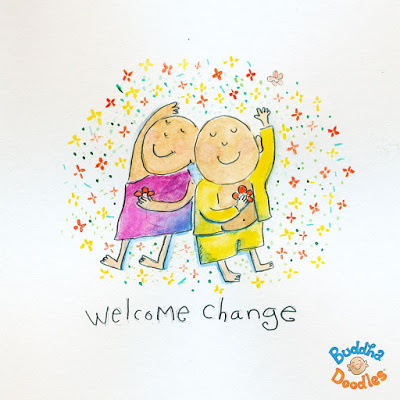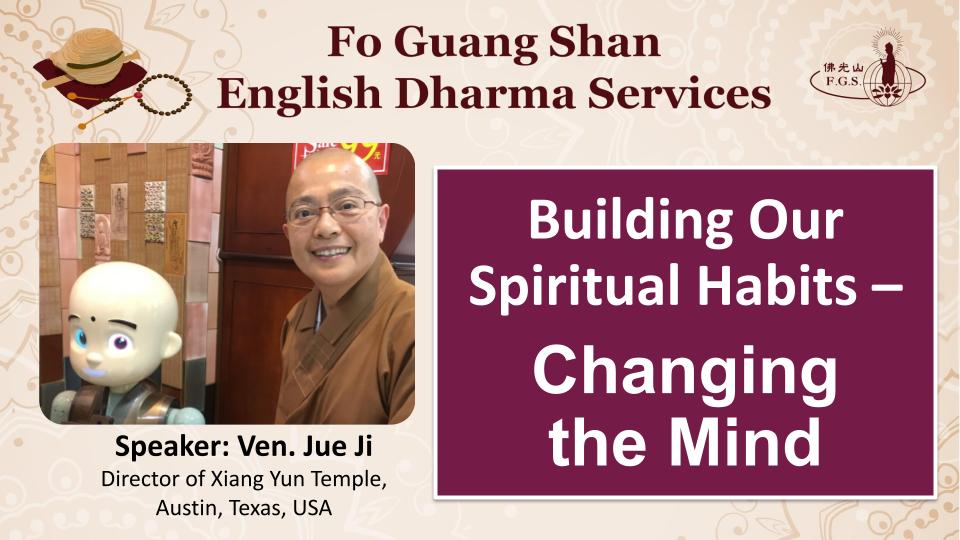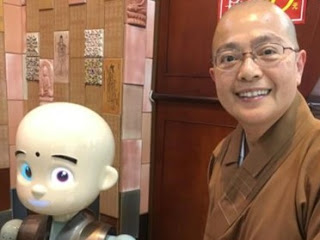
Speaker: Venerable Jue Ji
Director of Xiang Yun Temple, Austin, Texas, U.S.A
If I tell you that you must change your mind to become a better person, you will be confused. But if I say that you must cultivate your mind under that guidance of the Buddha’s teaching to be a better person. Would that make sense? But then you may further enquire, “What is the Buddha’s teaching?” Even you have some knowledge of the Buddha’s teaching, it would still be difficult for you to choose one as your spiritual guide. Today, I am going to share with you some thoughts about “changing the mind.” Here is a step by step plan for you:
First, be a “Dharma instrument”.
Second, find a spiritual guide.
Third, witness the magic work.
First, be a “Dharma instrument”
Let us make it clear that we become Buddhist students not because it is trendy. Nor should our bond with the Buddha be based on an insurance policy expecting that Buddhism can offer us the worldly wealth, protection, and longevity. Those people will soon become tired of being Buddhist students.
Being Buddhists means to commit ourselves to practicing the Buddha’s teaching. A Buddhist student needs to show his determination to learn Buddhism and change his mind to be a better person. Here is a Chan story that displays the determination of a strong motif to learn and practice Buddha Dharma.
Many Chan masters in ancient China requested their students to prove that they were worthy of the Buddha’s teaching. In Chinese, we describe these worthy students as good “Dharma instruments.”
Once, Chan Master Fayuan and his friends traveled north to see if Chan Master Guixing would accept them as his students. When they arrived, they waited eagerly to meet with the Chan master. From morning until night, no one paid them any attention. Hungry and cold, many left in a huff, except for Fayuan, who remained undeterred. Late at night, a monk finally asked him, “Why are you here?”
“I came here to learn the Dharma,” answered Fayuan.
Without any explanation, the monk poured a basin of water over Fayuan’s head and said, “Our teacher doesn’t have time for the likes of you. Clear off!”
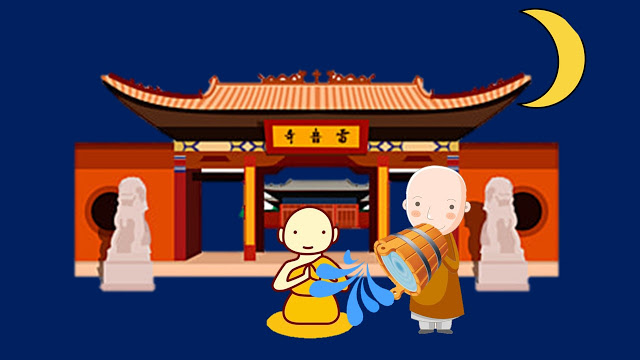
Fayuan did not give up. Respectfully, he told the monk, “I have journeyed thousands of miles from the south to be here. I will not turn back just because you douse me with water. I am going to stay here and wait.”
Moved by his determination, the monk finally allowed him to stay and work in the kitchen. Life at that time was tough. Even cooking oil was hard to come by. One day, Fayuan used some oil to cook noodles for the temple’s residents. When the abbot, Guixing, found this out, he sent for Fayuan and reproached him saying, “The oil is the property of the temple. How can you be so extravagant without first consulting with me? I want you to pay the temple back for the oil.”
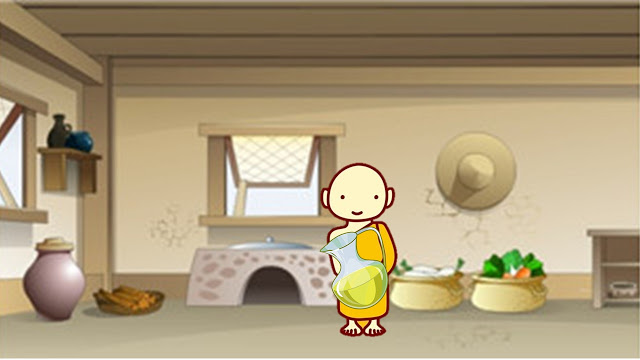
Fayuan was poor and could not pay for the oil. Guixing told him, “If you do not have any money, you can leave your robe behind as payment. However, you must leave.”
With nowhere to go, Fayuan decided to stay under the eaves of the temple roof. He thought that he could ask for alms and save money to repay the temple. Half a month later, when the abbot found out he had permanently camped outside the temple, he again summoned him and asked him to pay the temple rent for his spot under the roof.
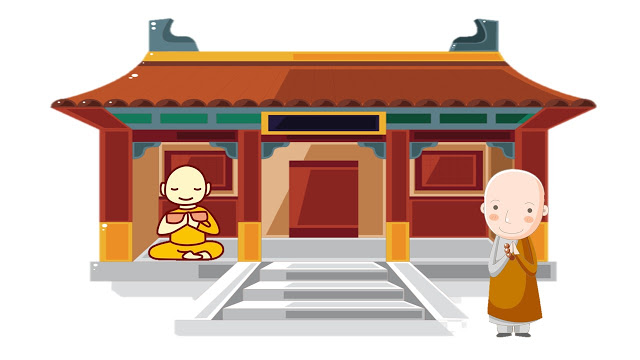
After many similar tests, the abbot was satisfied with his strong determination to learn and practice Buddha Dharma and eventually named him as the next abbot.
Second, find a spiritual guide.
The Buddha’s teaching covers the Four Noble Truths, Twelve Links of Dependent Origination, the Law of Cause and Effect, Karmic Rewards and Retributions, Three Dharma Seals, Six Paramitas, and so on. It is not easy to choose one to be the guide. It is like finding a needle in a haystack! Especially for beginners, they need more instructions to find the guide! There is no need to feel embarrassed to ask for a spiritual guide.
In the Platform Sutra, when the Fifth Patriarch escorted Huineng out of Huangmei, they had to cross a river. While the Fifth Patriarch was handling the oars, Huineng said, “When I was deluded, my teacher ferried me across. Upon awakening, I ferry myself.”
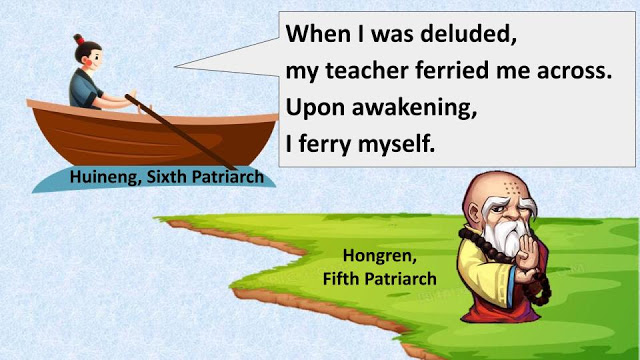
We are not yet enlightened, so we need a good spiritual friend to “ferry” us across the “river of suffering”. We may have read Buddhist sutras and listened to many Dharma lectures from various Buddhist teachers. Among them, Venerable Master Hsing Yun’s teaching excels in its conciseness and relevance to daily life practice.
Here is what Venerable Master Hsing Yun says about “changing the mind”:
“We must change our greed to generosity, our anger to loving kindness and compassion, our ignorance to wisdom, and our laziness to diligence.” It is to say that changing our mind is to change the way we respond to people living in the world and things happen in the world.
But this is a dualistic world we live in. Examples of the dual paradigms are: greed versus generosity, anger versus loving kindness and compassion, ignorance versus wisdom, and laziness versus diligence. Based on the dualistic paradigm, it is apparent that the cure of our greed is generosity; anger cured by loving kindness and compassion, ignorance cured by wisdom, and laziness by diligence.
Does it mean that the key to change our mind is to do things the opposite way?
The Middle Way taught by the Buddha says that we should avoid doing things extremely. When Venerable Master Hsing Yun says the cure of our greed is generosity, he wants us to moderate our behavior of being greedy; he doesn’t mean that we should get rid of all our desires. It is human to have necessary desires. But if we want more than what is necessary, it becomes an excessive desire. Then we have to practice letting go through generosity. We need the Middle Way as our spiritual guide.
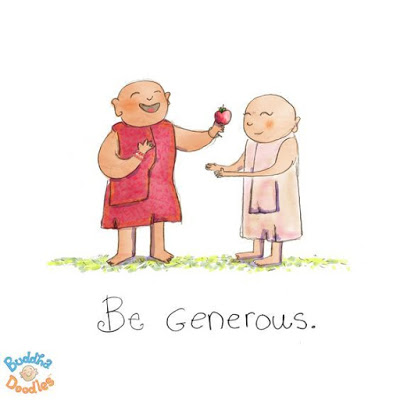
Third, witness the magic work
How do we know where the Middle Way is?
Venerable Master Hsing Yun says: Having knowledge of the teachings will not do you any good if they are not practiced in your everyday life.
In the Sutra of Teachings Bequeathed by the Buddha, the Buddha says, “I am like a good doctor who diagnoses ailments and prescribes medication. If you refuse to take the medication, the fault does not lie with the doctor.”
So, the Buddha is like a good guide, he shows us the right path. If we do not take it, the fault does not lie with the guide. Venerable Master Hsing Yun gives us the antidotes to our greed, anger, ignorance, and laziness. If we don’t take his advice, or putting it into our daily life practice, we would never get the cure, or the “magic work” of the Middle Way.
The Buddha teaches us that we all have the capacity to become Buddhas. Venerable Master Hsing Yun encourages us to loudly and firmly claim “I am a buddha” at the end of each Refuge Ceremony he presides. The faith is that everyone can become a Buddha and that our self-nature is not different from the Buddha nature. We are determined in this faith which qualifies ourselves as a good Dharma instrument in approaching the Buddha Dharma, taking the Middle Way as our spiritual guide, and witness the magic work of the Middle Way.
Venerable Master Hsing Yun gives us the antidotes to cure our greed, anger, ignorance, and laziness. Having taken the antidotes and practiced them in our daily life, we gradually purify our mind. It is through practicing the “antidotes” of the three poisons, we learn that changing our mind is not ridding of the here-and-now mind. It is adjusting our here-and-now mind to see the world. Venerable Master Hsing Yun says that it is “just as we must clean ourselves when we are dirty or wash our clothes when they are soiled, when the mind is defiled we must purify it.” In other words, changing the mind is a process to manifest the generous, compassionate, wise, and diligent perspectives of the mind. It is an ongoing process, and we need to work on it ourselves.
